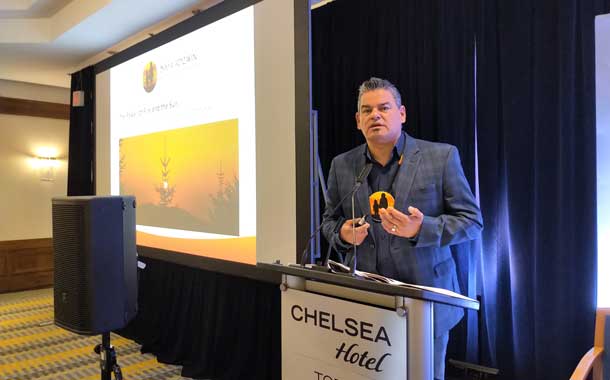TORONTO – After just one day of legalized cannabis rolling out across the country, Canada’s new green economy has sparked a huge appetite in the hundreds of thousands of consumers who lined up at storefronts and clicked away online. In fact, the overwhelming demand has already resulted in shortages of certain products.
“The media has reported that some stores ran out of cannabis by early afternoon while online retailers had over a million visitors yesterday,” said Isadore Day, Founder and Chief Executive Offices of Bimaadzwin Inc. “Of course, it was the first day of legalization and we’ll never again see people lining up at midnight in order to buy a few grams of marijuana. However, this is a strong indication that in the months and years to come, the cannabis industry needs a reliable supply of product.
Day adds, “As the former co-chair of the Assembly of First Nations’ National Task Force on Cannabis, I remain very much involved in all aspects of the potential for Indigenous participation in this new industry”.
“There are dozens of First Nation communities who have developed business opportunities in production facilities. At last month’s Ontario First Nation Economic Advancement Conference, held in Toronto, a survey revealed that over 60 percent of economic development officers indicated their communities have already been approached to participate as partners or investors in the cannabis industry.”
To some extent, First Nations in Ontario have gained much experience in the industry in recent years. Tyendinaga First Nation has about 40-50 dispensaries, as well as a production facility that complies with all federal standards. The Mohawks of Akwesasne recently became the first 100 percent First Nation owned cannabis production facility to be granted a medical marijuana licence from Health Canada.
“Next month, the very first Indigenous focused cannabis conference will be held at the Grey Eagle Resort and Casino in Calgary, hosted by the Tsuut’ina First Nation (www.nihc.ca). A second conference will be held in Ottawa in February 2019,” said Chief Day. “These are opportunities for governments and industry to work with First Nations not just on economic development, but education, health and safety as well.
“When the prohibition of alcohol ended in the 1930s, beer, wine, and liquor grew into annual multi-billion dollar industries. Until the 1960s, First Nations were not even allowed to purchase alcohol,” noted Chief Day. “The end of cannabis prohibition represents an opportunity for economic ‘reconciliation’ with Canada’s First Peoples. It’s time that this new green economy benefits the Peoples who have shared these lands in the expectation that we would all share in the wealth for generations to come.”







